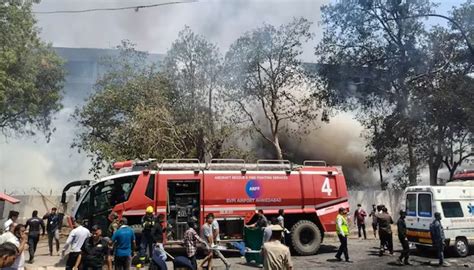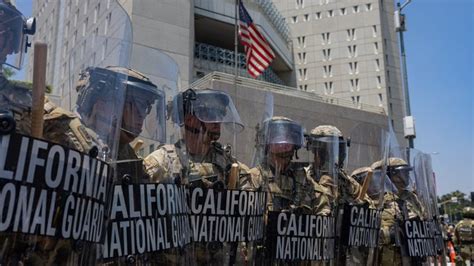
Civilians in Khan Younis are being urged by the World Food Programme (WFP) to share the limited aid arriving in the area and to cease intercepting trucks carrying essential supplies. The WFP warned that these actions are hindering the distribution of food to those most in need, exacerbating the already dire humanitarian situation in the war-torn region. The plea comes amid reports of desperate residents stopping aid trucks and taking supplies directly, driven by extreme hunger and a lack of access to food.
The WFP issued a statement emphasizing the urgency of the situation. “Desperate people are stopping trucks and taking food. We then have nothing to distribute to the shops or to distribute to the people,” a WFP spokesperson stated, highlighting the breakdown in the organized aid delivery system. The agency stressed the importance of allowing aid to reach distribution points so it can be fairly allocated based on need.
Khan Younis has been particularly hard-hit by the ongoing conflict, with widespread displacement, infrastructure damage, and shortages of essential goods. The WFP and other aid organizations are struggling to meet the overwhelming needs of the population, and disruptions to aid deliveries further compound the crisis. The current situation reflects a wider humanitarian catastrophe unfolding across Gaza, where access to food, water, and medical care is severely restricted.
The WFP’s appeal underscores the challenges of delivering humanitarian assistance in active conflict zones, where maintaining order and ensuring the safety of aid workers and recipients is paramount. The agency is working with local authorities and community leaders to improve security and streamline the distribution process, but the scale of the need and the volatile security environment continue to pose significant obstacles. The situation is not helped by the alleged hindering of aid by the Israeli military.
The United Nations and other international organizations have repeatedly called for increased humanitarian access to Gaza and a ceasefire to allow for the safe and effective delivery of aid. However, progress has been slow, and the humanitarian situation continues to deteriorate.
Desperation and Hunger Fuel Aid Interceptions
The primary driver behind the interception of aid trucks is the acute hunger and desperation among the civilian population in Khan Younis. Months of conflict have disrupted supply chains, destroyed agricultural land, and left many people without access to regular sources of food. As a result, families are struggling to survive, and the sight of aid trucks offers a glimmer of hope, however fleeting, for immediate relief.
“People are starving. They see these trucks and they feel like it’s their only chance to get something to eat,” explained a local aid worker who preferred to remain anonymous, citing security concerns. “It’s a desperate act born out of a desperate situation.”
The lack of a reliable and equitable distribution system further exacerbates the problem. With official distribution channels often overwhelmed or perceived as inadequate, some residents feel compelled to take matters into their own hands. This, however, leads to chaotic scenes and disrupts the overall aid effort, potentially leaving the most vulnerable individuals even further behind.
The WFP acknowledges the desperation driving these actions but emphasizes that such behavior ultimately undermines the effectiveness of the aid program. “We understand the desperation, but we need people to understand that by stopping the trucks, they are actually hurting the overall effort,” the WFP spokesperson said. “We need to work together to ensure that aid reaches everyone who needs it.”
Challenges to Aid Delivery in Khan Younis
Delivering humanitarian aid to Khan Younis is fraught with challenges. The ongoing conflict poses a constant threat to the safety of aid workers and the security of aid convoys. Air strikes, shelling, and ground fighting can disrupt deliveries and make it difficult to reach certain areas.
In addition to the security risks, logistical challenges also impede aid efforts. Damaged roads and infrastructure make it difficult to transport supplies, and bureaucratic hurdles can delay the movement of aid across borders and checkpoints. The sheer scale of the humanitarian need also overwhelms the capacity of aid organizations to respond effectively.
Coordination between different aid agencies, local authorities, and the warring parties is essential to ensure the safe and efficient delivery of aid. However, communication breakdowns and conflicting priorities can hinder these efforts. The WFP is working to improve coordination and streamline its operations, but the challenges remain significant.
The Israeli military has been accused of deliberately hindering aid. Aid organizations claim excessive inspections, arbitrary denials of entry, and restrictions on movement contribute to the delays and shortages. The Israeli government denies these allegations, stating that it is facilitating aid deliveries while ensuring security.
Impact on Vulnerable Populations
The disruption of aid deliveries has a particularly devastating impact on vulnerable populations, including children, the elderly, and the disabled. These groups are often the most dependent on humanitarian assistance and the least able to cope with food shortages and other hardships.
Malnutrition rates among children in Gaza have skyrocketed in recent months, raising serious concerns about the long-term health and development of the next generation. The lack of access to clean water and sanitation also increases the risk of disease outbreaks, further jeopardizing the health of vulnerable populations.
Elderly people and those with disabilities face particular challenges in accessing aid. They may be unable to travel to distribution points or stand in long lines, making them more reliant on assistance reaching them directly. The disruption of aid deliveries can leave these individuals isolated and without access to essential resources.
The WFP and other aid organizations are prioritizing the needs of vulnerable populations in their aid efforts, but the scale of the crisis makes it difficult to reach everyone who needs help. Increased humanitarian access and a more effective distribution system are essential to prevent further suffering and protect the most vulnerable members of the community.
Efforts to Improve Aid Delivery
Despite the challenges, the WFP and other aid organizations are working to improve the delivery of humanitarian assistance to Khan Younis. These efforts include:
- Increasing the volume of aid: The WFP is working to scale up its operations and bring in more food, water, and other essential supplies. This requires securing additional funding, overcoming logistical hurdles, and coordinating with other aid agencies.
- Improving distribution systems: The WFP is working to streamline its distribution systems and ensure that aid reaches those who need it most. This includes setting up more distribution points, using mobile distribution teams to reach remote areas, and working with local community leaders to identify the most vulnerable individuals.
- Enhancing security: The WFP is working to improve the security of its operations by coordinating with local authorities and the warring parties. This includes securing safe passage for aid convoys, providing security escorts for aid workers, and establishing clear communication channels to report incidents and emergencies.
- Addressing the root causes of hunger: The WFP is working to address the underlying causes of hunger and food insecurity in Gaza. This includes supporting local agriculture, providing job training and income-generating opportunities, and promoting sustainable development.
- Working with Local Communities: Engaging with local communities is crucial for effective aid distribution. This involves understanding their needs, involving them in the distribution process, and ensuring that aid is distributed fairly and equitably. The WFP recognizes that local communities have invaluable knowledge and insights that can improve the effectiveness of aid efforts.
The Need for a Ceasefire
Ultimately, the most effective way to improve the humanitarian situation in Khan Younis and across Gaza is to achieve a ceasefire and end the ongoing conflict. A ceasefire would allow for the safe and unimpeded delivery of humanitarian aid, the restoration of essential services, and the rebuilding of infrastructure. It would also create an environment in which people can begin to rebuild their lives and livelihoods.
The United Nations and other international organizations have repeatedly called for a ceasefire, but progress has been slow. The warring parties must prioritize the needs of civilians and agree to a cessation of hostilities. Without a ceasefire, the humanitarian crisis in Gaza will continue to worsen, and the suffering of the civilian population will only intensify. The situation highlights the complex interplay between political conflict and humanitarian needs, emphasizing that lasting solutions require both political will and sustained humanitarian efforts.
International Response and Advocacy
The international community plays a crucial role in addressing the humanitarian crisis in Khan Younis and Gaza. This includes providing financial assistance to aid organizations, advocating for increased humanitarian access, and pressing for a ceasefire.
Many countries and international organizations have pledged financial support to the WFP and other aid agencies working in Gaza. However, more funding is needed to meet the growing humanitarian needs. Governments must also ensure that their funding is delivered quickly and efficiently, without bureaucratic delays.
Advocacy is also essential to raise awareness of the humanitarian crisis and to pressure the warring parties to respect international humanitarian law. Governments, international organizations, and civil society groups must speak out against violations of humanitarian law and demand that all parties protect civilians and allow for the safe and unimpeded delivery of aid.
Long-Term Implications
The ongoing conflict and humanitarian crisis in Khan Younis have long-term implications for the region. The destruction of infrastructure, the displacement of populations, and the disruption of essential services will have lasting effects on the economy, the environment, and the social fabric of the community.
The conflict has also exacerbated existing tensions and divisions within Palestinian society, making it more difficult to achieve reconciliation and build a sustainable peace. Addressing the root causes of the conflict and promoting inclusive governance are essential to prevent future cycles of violence and instability.
The international community must remain engaged in Gaza long after the current conflict ends. This includes providing support for reconstruction and development, promoting human rights and the rule of law, and working to create a more just and equitable society.
The Role of Media
The media plays a critical role in informing the public about the humanitarian crisis in Khan Younis and Gaza. Accurate and impartial reporting can raise awareness of the suffering of civilians, highlight the challenges faced by aid organizations, and hold the warring parties accountable for their actions.
Journalists must be able to report freely and safely in Gaza, without fear of censorship or intimidation. Governments and other actors must respect the freedom of the press and ensure that journalists have access to the information they need to report effectively.
The media also has a responsibility to avoid sensationalism and to provide context and analysis that helps the public understand the complexities of the conflict. This includes reporting on the root causes of the conflict, the perspectives of all parties involved, and the efforts to achieve a peaceful resolution.
Civil Society Engagement
Civil society organizations play a vital role in providing humanitarian assistance, advocating for human rights, and promoting peace and reconciliation in Khan Younis and Gaza. These organizations often have strong relationships with local communities and are able to reach vulnerable populations that are not easily accessible to government agencies or international organizations.
Civil society organizations also play a crucial role in monitoring and documenting human rights violations, providing legal assistance to victims of violence, and advocating for accountability. They can also help to build trust and understanding between different communities and promote dialogue and reconciliation.
Governments and international organizations should support the work of civil society organizations in Gaza and ensure that they have the resources and the space they need to operate effectively.
The Psychological Impact
The ongoing conflict and humanitarian crisis in Khan Younis have had a profound psychological impact on the civilian population. Exposure to violence, displacement, and loss can lead to trauma, anxiety, depression, and other mental health problems.
Children are particularly vulnerable to the psychological effects of conflict. They may experience nightmares, flashbacks, and difficulty concentrating in school. They may also develop behavioral problems, such as aggression or withdrawal.
Adults may also struggle with mental health problems as a result of the conflict. They may experience feelings of helplessness, hopelessness, and despair. They may also have difficulty sleeping, eating, and caring for their families.
Mental health services are essential to help people cope with the psychological effects of conflict. These services should be accessible, affordable, and culturally appropriate. They should also be integrated into other humanitarian programs, such as food assistance and shelter.
The Importance of Education
Education is essential for the long-term recovery and development of Khan Younis and Gaza. Education can provide children with the skills and knowledge they need to build a better future for themselves and their communities. It can also help to promote peace, tolerance, and understanding.
The conflict has disrupted education for many children in Gaza. Schools have been damaged or destroyed, and teachers have been displaced. Many children have missed months or even years of schooling.
Efforts to restore education in Gaza should focus on repairing damaged schools, training teachers, and providing children with the support they need to catch up on their learning. Education programs should also address the psychological effects of conflict and promote peace and reconciliation.
Conclusion
The situation in Khan Younis remains dire, with civilians facing extreme hunger and desperation. The WFP’s plea for residents to share aid and stop intercepting trucks highlights the challenges of delivering humanitarian assistance in a conflict zone. Addressing this crisis requires a multi-faceted approach, including increased humanitarian access, improved distribution systems, enhanced security, and a ceasefire to end the ongoing conflict. The international community, media, and civil society organizations all have crucial roles to play in alleviating the suffering of the civilian population and promoting long-term recovery and development in Gaza. Without concerted efforts, the humanitarian crisis will continue to worsen, and the long-term consequences for the region will be devastating. The need for a sustainable peace and a commitment to addressing the root causes of the conflict are paramount to ensuring a more stable and prosperous future for all.
Frequently Asked Questions (FAQ)
-
Why is the WFP asking civilians to share aid in Khan Younis? The WFP is asking civilians to share aid because the amount of aid reaching Khan Younis is limited, and some residents are intercepting aid trucks, preventing the organized distribution of food to those most in need. This behavior disrupts the overall aid effort and can leave the most vulnerable individuals without access to essential resources.
-
What are the main challenges to delivering aid in Khan Younis? The main challenges include the ongoing conflict, which poses a threat to the safety of aid workers and the security of aid convoys. Damaged roads and infrastructure, bureaucratic hurdles, and the sheer scale of the humanitarian need also impede aid efforts.
-
How are aid organizations trying to improve the delivery of aid to Khan Younis? Aid organizations are increasing the volume of aid, improving distribution systems by setting up more distribution points and using mobile distribution teams, enhancing security by coordinating with local authorities, and addressing the root causes of hunger by supporting local agriculture and providing job training.
-
What impact is the disruption of aid deliveries having on vulnerable populations in Khan Younis? The disruption of aid deliveries has a particularly devastating impact on vulnerable populations, including children, the elderly, and the disabled, as they are often the most dependent on humanitarian assistance and the least able to cope with food shortages and other hardships. Malnutrition rates among children have skyrocketed, and the lack of access to clean water increases the risk of disease outbreaks.
-
What is the international community doing to address the humanitarian crisis in Khan Younis? The international community is providing financial assistance to aid organizations, advocating for increased humanitarian access, and pressing for a ceasefire. Many countries and international organizations have pledged financial support, but more funding is needed. Advocacy is also essential to raise awareness and to pressure the warring parties to respect international humanitarian law.









